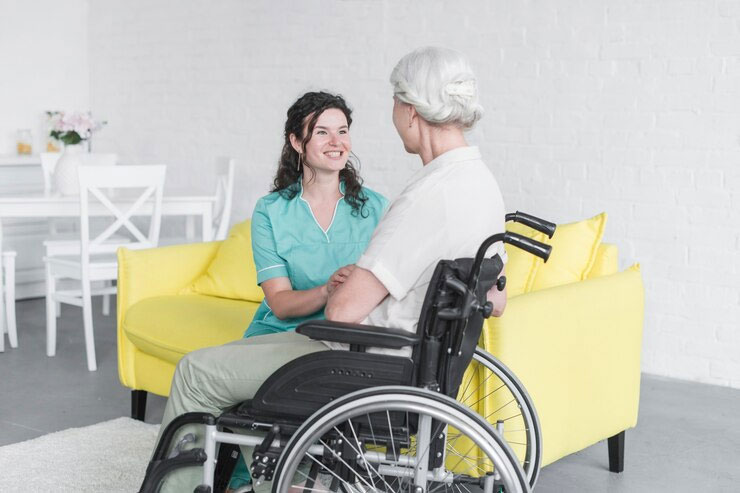

Complex Bowel Care
Helping touch services supports participants who require complex bowel management. This may apply to, participants with conditions causing muscle or nerve damage such as spinal injury, Cerebral palsy, Acquired Brain Injury; and neurological conditions such as, stroke, autism and Gut health.
Enteral Feeding Support
Helping touch services supports participants who require enteral feeding tubes (also called Home Enteral Nutrition (HEN) and Nasogastric tube feeding (NGT), Gastrostomy feeding, including percutaneous endoscopic gastrostomy (PEG) or jejunostomy.
Dysphagia Support
Helping touch services supports participants who that have been assessed as having swallowing, biting or chewing difficulties. Supporitng and assisting participants that are at risk for of choking, aspiration, malnutrition and/or dehydration.
Ventilator Support
Helping touch services supports participants That May Require Support To Use Ventilators And Accessory Equipment Such As; Bilevel Positive Airway Pressure (BiPAP), Continuous Positive Airway Pressure (CPAP), Humidifiers, Airway Clearance Devices, Cough Assist Machines, Suctioning, Manual Ventilation Devices, And Oxygen.
Tracheostomy Support
Helping touch services participants who require who use both fenestrated or non-fenestrated tracheostomy and related equipment and appliances, such as stoma appliances and stoma care, heat moisture exchange machines, humidifiers, nebuliser devices, suctioning bags, and dressings.
Urinary Catheter Support (In-dwelling Urinary Catheter, In-out Catheter, Suprapubic Catheter)
Helping touch services supports participants who require high intensity support with catheters. This includes insertion and removal of an intermittent catheters by a health professionals. Insertion of in-dwelling and suprapubic catheters by health professionals.
Subcutaneous Injections
Helping touch services supports participants who require subcutaneous injections and administering a range of medications. Supporting participants to manage their diabetes, and calculating the dose of insulin required, as per the support/medication plan.
Complex Wound Care Support
Helping touch services supports participants who are at high risk of pressure injuries,this includes both prevention and management of wounds and pressure injuries when they arise. Health professionals who have the skills and knowledge to support participants to use equipment such as lymphoedema machines and assistive circulatory devices, and conduct complex wound dressings.
Epilepsy and Seizure Support
Helping touch services supports participants who require use of seizure monitors and wearable technology, such as smartwatches, sleep activity monitors and/or above mattress sensors.